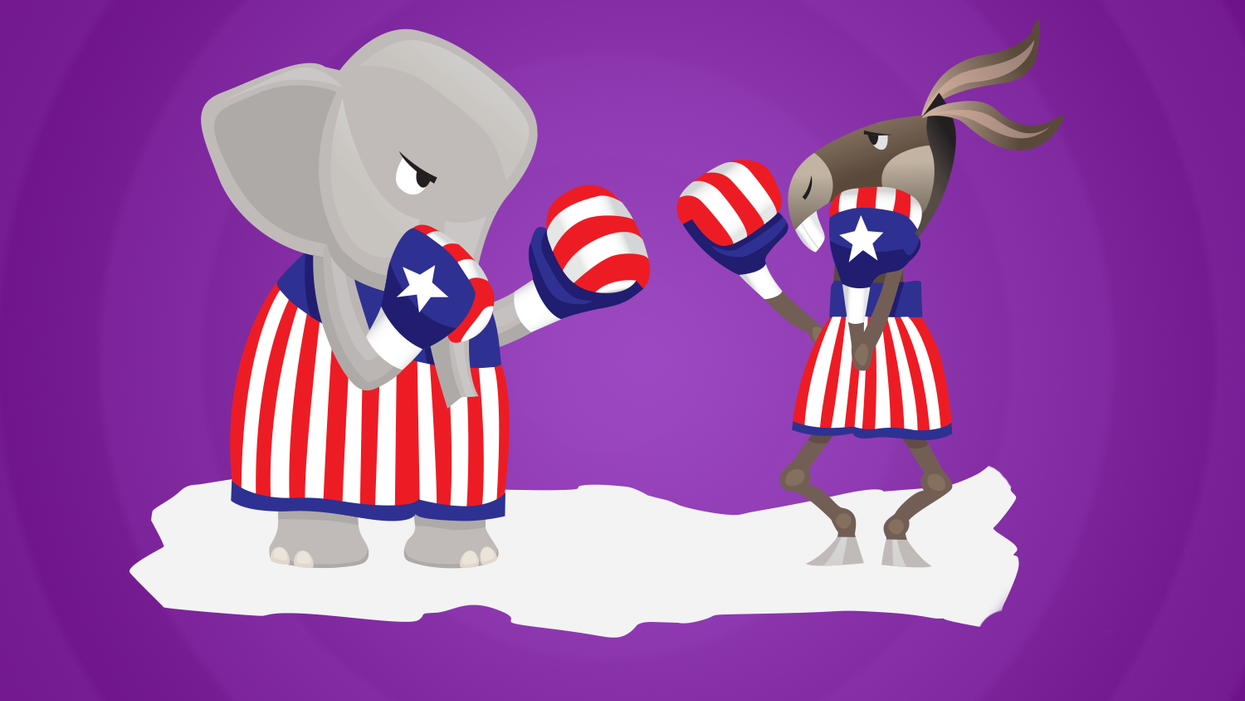Election security and voting rights are on a collision course in the state with the nation's best voter turnout.
The Minnesota Legislature opened its session a week ago with another sharp disagreement over the millions available from Washington to modernize voting systems and election administration to strengthen defenses against election hacking and the spread of disinformation.
The Democrats who run the House want to allocate the latest $4.7 million installment as soon as possible and with no strings attached. The Republicans who run the Senate say they won't accept the money unless it's paired with a new and strict system of provisional balloting.
The situation in St. Paul is unique. The statehouse is one of only two in the country where there's now a partisan divide (the other is Alaska) and Minnesota is among just a handful of states where legislators must vote on allocating the election security money.
Republican state senators say they are out to tackle another aspect of state law that's highly unusual: It's among just three states where there is no method of provisional voting. All people who show up at the polls are given the same ballots, which are counted unless a successful challenge is mounted to a voter's qualifications.
The burden of proof would be reversed under the GOP legislation. Officials would provide provisional ballots to those who cannot verify their eligibility at their polling places, and those votes would only be counted if they later established they were who they said they were.
Democrats say this will inevitably suppress the vote in Minnesota, which has had the highest turnout of any state in the past four presidential elections. Almost 75 percent of those eligible cast ballots in 2016, for example, when the national figure was 61 percent. One reason for that history is it was among the first states to permit people with proof of age and residency to register and vote on Election Day.
Election officials say there's no evidence of widespread voter fraud in Minnesota, but the GOP says worries about malfeasance are behind their demand to hold the election security money hostage to a provisional ballot deal. They are also pushing separate legislation to require a photo ID to vote, an idea rejected in a statewide referendum eight years ago.
How the unusual standoff is handled before the session ends in May could influence how Minnesota's 10 electoral votes fall in the presidential election, when the state is among about a dozen that could reasonably support either candidate. While the Democrat has carried the state 11 straight times, President Trump came within 45,000 votes of winning it last time and has vowed to contest it harder this year.
Although no hacking was uncovered, the federal government says, Minnesota was among 21 states that were known to be targeted by the Russians four years ago. Since then, a cyber-defense team including the Minnesota National Guard has been created to look for and address vulnerabilities.
That effort is being aided by the state's $6.6 million share of the first round of election security grant funding provided by Congress two years ago — but not released for more than a year thereafter. That's because, in the name of budgetary restraint, the GOP Senate refused for months to vote for tapping any more than a third of what the federal government had provided. Legislation accepting the full amount was only agreed to in the closing hours of last year's session.
A different bill introduced by House Democrats would remove the requirement for legislative approval to access the federal election security money.




















Trump & Hegseth gave Mark Kelly a huge 2028 gift